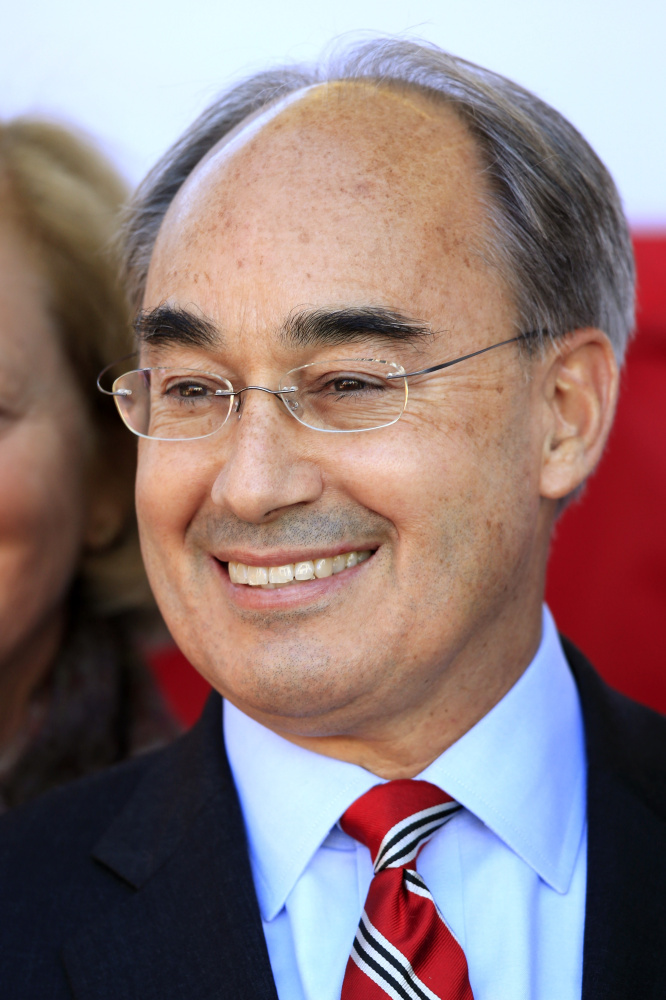Rep. Bruce Poliquin and Democrat Emily Cain focused on jobs and the economy Wednesday night in the second of the three debates in the race for the 2nd Congressional District seat.
The debate, hosted by WAGM-TV and the Aroostook Partnership, featured questions from voters as well as a “lightning round” in which the candidates were asked to respond with just one word or sentence about each of Maine’s five ballot initiatives.
Like the first debate, Monday night, Wednesday’s session in Presque Isle included personal attacks on both sides, with Poliquin referring to Cain as “extreme” and a “career politician,” while Cain criticized Poliquin for a lack of honesty and history of abusing tax loopholes or paying personal taxes late.
For the most part, questions Wednesday night focused on jobs and the economy, which both candidates cited in opening statements as being the most important issue in the state. They also addressed veterans’ issues, outside spending in the 2nd District race, health care and environmental issues during the course of the hourlong debate.
When it comes to the economy, Poliquin said his experience as a businessman would help with job creation and also emphasized a need to lower taxes; while Cain talked about working with small businesses to “make the tax code work” and expand access to resources such as natural gas.
Both also said they oppose the Trans Pacific Partnership, an international trade agreement that stands to threaten some U.S. manufacturing jobs, but Cain criticized Poliquin for taking time to announce his stance on the issue.
Cain said the environment and energy issues are “at the heart of where the economy has room to grow,” while Poliquin attacked her for supporting a tax on carbon, a move that he said would “drive up the cost of electricity and kill jobs in Maine.”
They also differed in their response to a question about ensuring Social Security benefits for Maine seniors, with Poliquin criticizing Cain’s support of the Affordable Care Act, a program he said resulted in a $750 billion cut to Medicare. Cain, meanwhile, criticized Poliquin for voting in support of a budget that cut Social Security and turned Medicare into a voucher system.
Throughout the debate, the candidates also referred to the large amount of outside spending in the race, including ads sponsored by the liberal-leaning VoteVets and the National Republican Congressional Committee.
Cain criticized Poliquin for voting to support a budget for the Department of Veteran’s Affairs in 2015 that fell short of a request from President Obama for more funding, a subject that is also the subject of the VoteVets ad; while Poliquin said he would not denounce an NRCC ad that criticized Cain for legislation aimed at monitoring childhood obesity.
Poliquin has refrained from commenting on Maine’s five referendum questions, though in the past he did tell WMTW’s Paul Merrill that he supports Question 3, which would implement universal background checks for gun owners. Poliquin initially declined to comment on the question Wednesday, but after being asked a second time by Merrill, one of three moderators of the debate, said that he personally will not support Question 3, but “I’m not here to tell people how to vote.”
Cain, who plans to support all of the referendum questions with the exception of marijuana legalization, said, “I hope it’s clear that I answered every question tonight. I want to be clear that it’s not about telling people how to vote, but sharing with them how we will vote so they can be informed about the decisions we make.”
Send questions/comments to the editors.




